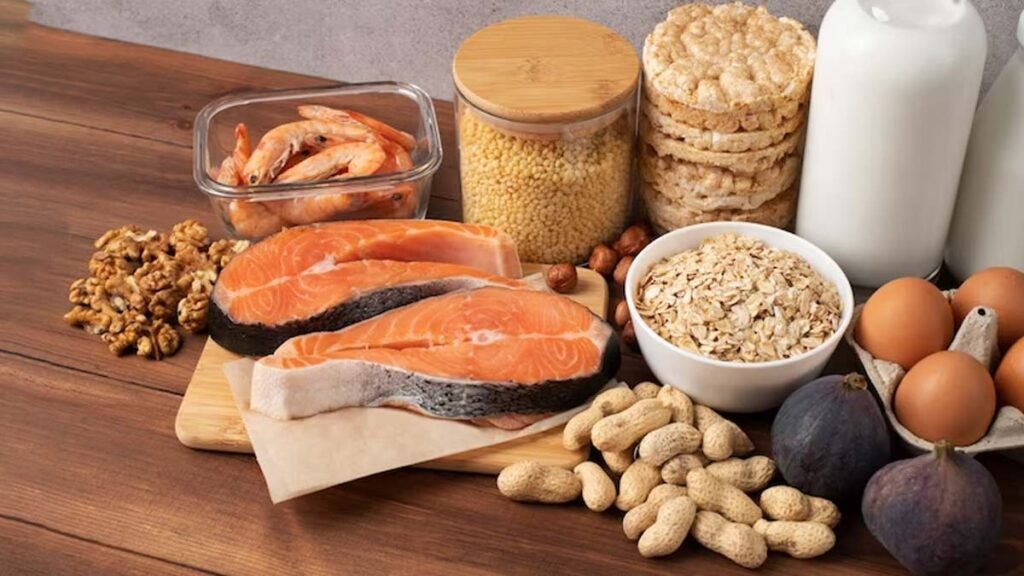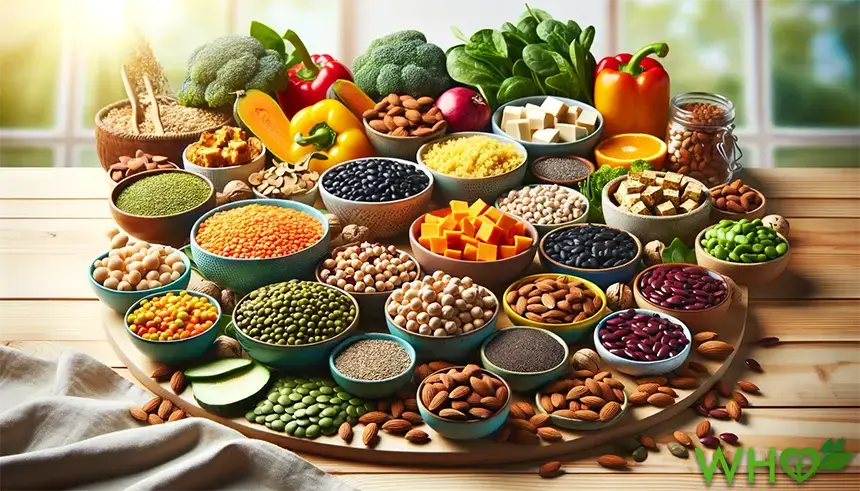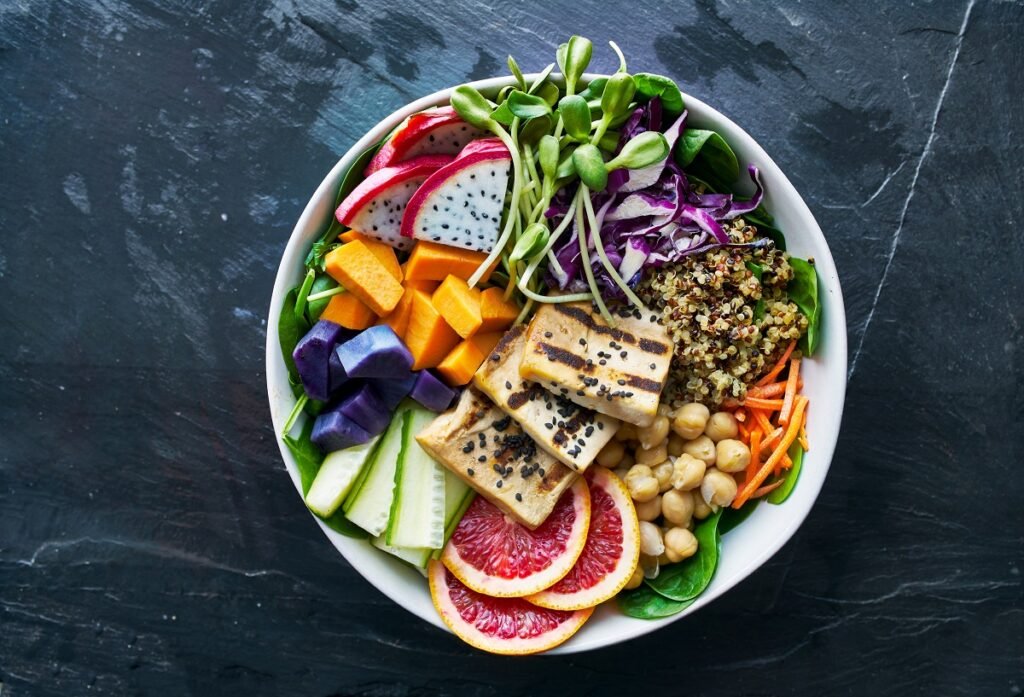Which is better, Drinking Protein or Eating Protein?
Which is better, Drinking Protein or Eating Protein? – Protein plays an important role for our physical development and health. It is the main ingredient in our food which provides us energy and strengthens our muscles. There are many ways to consume protein, out of which the two main ways are – drinking protein and eating protein. But do you know which of these two is better? Let us know.
Daily protein requirements for individuals may vary depending on factors such as age, gender, activity level and overall health. Here are some general guidelines for daily protein intake:

Male:
Sedentary men: About 56-63 grams of protein per day
Active men: (engaging in regular physical activity or strength training): About 70-98 grams of protein or more per day.
women:
Sedentary women: About 46-50 grams of protein per day
Active women: (engaging in regular physical activity or strength training): About 57-79 grams of protein or more per day.
Children:
Protein requirements for children may vary depending on their age and growth stage.
Importance of Protein:
Protein plays an important role in the building and construction of our body. It helps maintain the energy levels of our body and helps us control appetite. An abundance of protein can also help the brain function properly and reduce the risk of asthma, diabetes, and other diseases.
Protein is an essential macronutrient that makes up the majority of our body (besides water). It forms our skin, muscles, hormones, enzymes, bones, blood etc. However, unlike other macronutrients like carbohydrates and fats, there is no reserve in our body to store protein. Given that a large percentage of our population in India is vegetarian, this highlights the fact that many of us do not get enough protein in our daily diet. And so the question comes whether you should eat your protein or you should drink your protein.
We are here to help you understand what is the right way to consume your protein. The adult RDA for protein is 0.8-1 gram protein per kilogram of body weight, also depending on the type of physical activities you do in your daily routine. A sedentary man will require approximately 56-63 grams of protein per day. For most non-vegetarians, this is not the case because the average non-vegetarian diet mainly fulfills the body’s need for proteins, also called complete proteins because they contain 9 types of amino acids that our body cannot produce on its own. Can do.
For vegetarians, dairy products, tofu, quinoa, or food combinations like dal chawal, hummus & pita bread etc. can be classified as complete proteins. While protein powders/shakes contain vitamins and minerals, food intake through natural resources contains natural vitamins, minerals, antioxidants and fiber, ensuring that you are satiated with food. It usually takes about 20-30 minutes for our brain to signal that we are full from chewing. Therefore, drinking protein alone will not make you feel full as it is consumed quickly.
Eating protein also reduces the possible side effects of protein shakes, such as nausea, headache, swelling etc. Therefore it is essential to choose your protein powders from a good brand or make your own protein powder at home. It should also be noted that those who use protein shakes as meal replacements for weight loss are on a slippery slope as relying solely on meal-replacement drinks is not the wisest choice. All benefits or results will be lost as soon as you start eating normally. Therefore, it is better to stick to a healthy balanced diet where you consume everything in moderation.
Drinking Protein:
Drinking Protein is designed to allow your body to store protein immediately. It is easily digested and is available in many types of protein drinks. It can help you in fast recovery and provide protein to your body quickly. Additionally, drinking protein is also easy to carry around, especially when you lead a busy lifestyle.
Benefits of drinking protein:
Quick Absorption: Drinking protein is quickly absorbed into your body, allowing you to reap the benefits of protein immediately.
Convenience: Drinking protein is easy to consume and can be prepared quickly.
Various Options: Drinking protein is available in many different flavors and protein sources, giving you the freedom to choose as per your preference.
Advantages:
Convenience: Protein shakes and drinks are quick and easy to prepare and easy to consume, making them a convenient option for busy individuals.
Portability: These can be easily carried and consumed anywhere, making them a suitable option for post-workout recovery.
Precise Dosage: Protein supplements allow you to measure and control the exact amount of protein you consume.
Disadvantages:
Nutrient deficiencies: Protein supplements may lack the broad spectrum of nutrients found in whole foods.
Taste: Some people find the taste of protein shakes less enjoyable than that of whole foods.
Cost: High-quality protein supplements can be expensive compared to whole food sources.
Also Read This:
- Wellhealthorganic.com: weight loss in monsoon these 5 monsoon fruits can help you lose weight
- Wellhealthorganic.com: Vegetarian Protein Sources | Wellhealthorganic Ayush 2024
- wellhealthorganic high protein rich food for vegetarians to boost your health 2024
- Healthy Life Wellhealthorganic.com – You can Live it in 2024
- Wellhealthorganic.com: amazing beauty tips of ice cube will make you beautiful and young 2024
Eating Protein:
Edible protein means that you are taking protein sources in the form of food. This may include meat, milk products, pulses, eggs, and party ingredients. Consuming protein in food keeps your body and brain active and it keeps you from feeling hungry for a long time. It also becomes a source of various nutrients in your diet.
Benefits of eating protein:
Nutritional Completeness: Including protein in your diet provides you with other nutrients, which boost your physical health.
Control appetite: Consuming protein in food can control your appetite, which keeps your weight under control.
Mature Nutrition: Eating protein matures your diet and helps provide you with energy.
Advantages:
Whole Food Nutrition: Consuming protein from whole foods provides not only protein but also other essential nutrients like vitamins, minerals, fiber and healthy fats.
Satiety: Whole food sources of protein can help you feel full longer due to the fiber content, potentially helpful in weight management.
Taste and variety: Eating protein-rich foods provides a wide variety of tastes and textures, making meals more enjoyable.
Disadvantages:
Time-consuming: Preparing and cooking protein-rich meals can be time-consuming, which may not be ideal for people with busy lifestyles.
Portability: Compared to drinking protein, whole foods are not as convenient to carry and consume on the go.
what is better?
Both eating and drinking have their own advantages and disadvantages as sources of protein. Drinking protein can provide you with a quick and easy fix, while eating protein gives you the benefits of a variety of nutrients.
Depending on your body requirements and age, you can choose your protein source. If your goal is quick protein accumulation, drinking protein may be a good option. However, if you need a variety of nutrients and enjoy a more nutritious diet, it may be better to consider eating protein.
Therefore, both drinking protein and eating protein have their own advantages and disadvantages. You should choose your protein source based on your goals, age, and physical needs. Along with this, it is also important to have a balanced diet along with a healthy lifestyle and regular exercise.
Examples of protein content in foods (per 100 grams):
- Salmon: Roughly 25 grams of protein.
- Tofu: About 8 grams of protein.
- Lentils: Approximately 9 grams of protein.
- Eggs: Around 13 grams of protein.
- Greek yogurt: About 10 grams of protein.
- Quinoa: Roughly 4 grams of protein.
- Almonds: Approximately 21 grams of protein.
- Whey protein powder (supplement): Typically 60-80 grams of protein
Finally, protein is essential for your physical and mental health. Depending on your goals, age, and lifestyle, you can choose your protein source. You can live a healthy and balanced life by keeping variety and balance in your diet.
Disclaimer:
This article provides general information only. It is in no way a substitute for qualified medical opinion. Always consult a specialist or your own doctor for more information. Well Health Organic does not take responsibility for this information.
FAQs
Why is protein important?
Protein plays an important role in our physical development and muscle building. It provides us with energy and is an essential building block for optimal health.
What is the difference between drinking protein and eating protein?
Drinking protein is a protein shake that is in the form of a protein supplement, while eating protein is in the form of protein food.
What kind of protein source could be better to choose?
It depends on your goals and requirements. If you need quick protein, drinking protein may be suitable. While a balanced diet with other nutrients is required, it may be appropriate to include protein in the diet.
Is there more nutrition in eating protein or drinking protein?
Eating protein often has more nutrition, because it is balanced with other nutrients that promote your physical health.
What are some good sources of protein?
Meat, eggs, milk products, pulses, soy products, and nuts are good sources of protein.
Can periodic consumption of protein be beneficial?
Yes, periodic intake of protein can be beneficial especially before and after exercise, as it helps in muscle building and immediate recovery.
What are the side effects of consuming some proteins?
Excessive consumption of protein may cause stomach ache or gas problem to some people. Apart from this, excessive protein intake for a long period of time may also have some other side effects.




